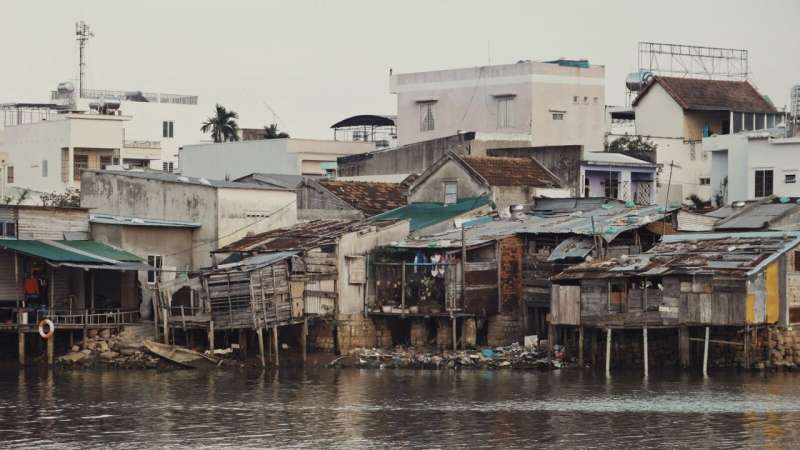This article has been reviewed according to Science X's editorial process and policies. Editors have highlighted the following attributes while ensuring the content's credibility:
fact-checked
trusted source
proofread
How the Sustainable Livelihood Framework can increase WaSH access for marginalized groups

Ensuring all people have unrestricted access to Water, Sanitation and Hygiene (WaSH) is central to realizing development policies worldwide. Poor WaSH facilities plague many low- and middle-income countries as one of the biggest causes of illness and death. In order to ease these problems, our approach to providing acceptable levels of WaSH access must be re-examined.
Using the Sustainable Livelihood Framework (SLF) offers opportunities to do this. The SLF emerged from changing development perspectives in the 1970s and 1980s, splitting livelihoods into varying assets which impact access to resources and physical capabilities, and are determined by different contexts and conditions. Thus, it can shed light on developing access to WaSH while simultaneously adapting to geographical variations and incorporating voices and skills of underrepresented groups.
Many development education programs don't involve WaSH aid recipients in decision-making. WaSH practices around the world are influenced by cultural and socio-economic factors that are neglected by practitioners with no experience of local priorities. Applying the SLF to increase communication can help communities understand how WaSH practices aim to have a positive impact and provide them with ample opportunities to express opinions, increasing trust in WaSH systems.
Some rural water systems have taken this even further. In Ghana, Kenya and Zambia, the creation of water committees in rural communities has allowed them more technical responsibility for managing their water systems. The committees have expanded to involve more rural voices, resulting in increased community participation about developing sustainable WaSH facilities.
These water committees allow local communities to dictate the future of WaSH priorities, exhibiting the human-centered approach of the SLF. Placing local communities at the forefront of WaSH discussions can help development programs consider policies that align with individuals' needs, increasing effectiveness of WaSH interventions.
The involvement of Indigenous communities in Northern Australia illustrates other areas where the SLF can help advance access to WaSH. Colonial legacies have characterized the Indigenous communities as uneducated, leading to their exclusion from water systems. Consequently, they do not receive sufficient water or benefit from "water markets," the process where water is bought and sold. Giving Indigenous communities control of their water increases their water supply and ability to participate in the capitalist system of profiting from natural resources. Thus, the SLF helps to balance economic inequalities of water by giving underrepresented groups more agency over their local environment.
Undoubtedly, the SLF is an effective tool to help marginalized groups increase their access to WaSH. Developing both economic and social rights to WaSH increases efficiency and ensures WaSH solutions are based on communities' priorities.
Practically, the SLF has been able to diversify power dynamics in WaSH systems, but how much further it can implement its ideals is questionable. Large-scale organization within urban cities is untested and would require significant commitment from political actors that does not appear to be forthcoming. Nevertheless, the SLF's bottom-up approach is sorely overlooked and ought to be better incorporated into development practices aiming to increase access to WaSH.
Provided by University of Sheffield





















